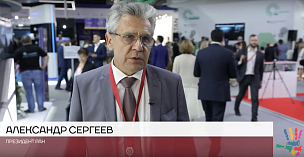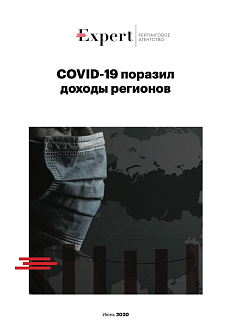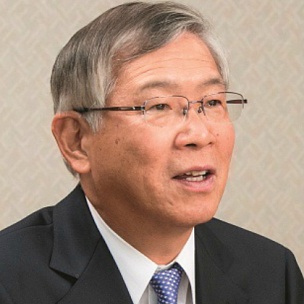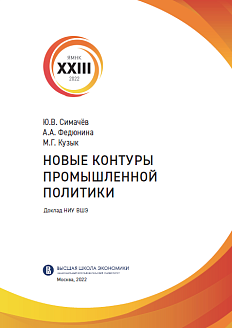The geographical method

Yuri Uskov, iSpring: «Just stop trying to leave Yoshkar-Ola»
There are several hotspots of IT entrepreneurship in the world. Why do they appear in certain places and not others? No reason. Only because one positive-minded and stubborn person decided: I want to build my business right here. And the whole world will have to adapt.Yuri Uskov is one of these stubborn locals. His love for his town of Yoshkar-Ola did not stop him from creating iSpring, an IT company with a turnover of more than USD 10 million, 80% of which is from international markets.
Uskovs ancestors have lived here for 300 years. Yuri was born to a family of workers; his mother and father dedicated their lives to working at the local military plant. During World War II, strategic industries were evacuated to Yoshkar-Ola, turning the backwater Tsaryovokokshaysk into an industrial city. In 60 years, the USSR was gone, leaving behind some factories and a deadend railway. But Uskovs idea is not just about living in Yoshkar-Ola, its about creating a thriving centre of internet-entrepreneurship. And hes already done it.

250 iSpring employees create products used by Microsoft, Oracle, IBM, Tesla Motors, Siemens and other giants
«Proctor & Gamble are in Cincinnati, its the same size as Yoshkar-Ola. Fords head office is in Dearborn. Ever heard of such a town? Founder of Walmart Sam Walton started his empire from Bentonville, Arkansas,» Uskov enthusiastically names companies that have picked a decentralised way of life. «Everyone is asking the same stupid question: why not Moscow? Like there are no other ways to develop. Its the 21st century, geography is hardly a factor for modern industry.»The case of iSpring really is proof that a good team can work in any geographical setting. iSprings product knows no language barriers or administrative borders. In 2000, Uskov, together with friend and business partner Sasha Galochkin, created a range of instruments for online education and became one of the market leaders in the Learning Management System (LMS) segment. This product is like a customised corporate online university and iSpring has a wide range of solutions in the area. The solutions, created and supported by the 250-strong staff of iSpring in Yoshkar-Ola, are used by 53,000 people around the world. Among iSprings clients are Microsoft, Proctor & Gamble, Oracle, IBM, Tesla Motors, Siemens, Pfizer, Lego and other major companies.
The unusually high concentration of programmers in Yoshkar-Ola is now obvious to any casual observer in any local cafe with WiFi. Bearded introverted programmers are appearing in the neighbouring villages. These post-industrial peasants are perfectly sorted here; the company helps young specialists buy land and build a house
Uskov believes that business is like big sport. But for him its not all about targets and records. Twenty years ago, he was driven by a competitive thrill to develop something interesting and new, and to beat everyone to it. Later Yuri realized that the energy he has to move forward comes from the very
place where he was born and where he chose to stay. The law of conservation of energy dictates that if energy is wasted somewhere, it must go into something. Uskov is trying to give this energy back to Yoshkar-Ola.

Yuri Uskov has managed to create a thriving atmosphere for the post-industrial peasantry in Yoshkar-Ola
Recklessness is inspiring. Following iSpring, several other entrepreneurs with similar turnovers have established themselves in Yoshkar-Olas region Mari El. Yuri has recently become head of the local IT company organization formed from 10 resident companies. Yoshkar-Ola is even headhunting valuable personnel from Moscow, iSprings Director for Business Development Vladimir Khrypun came here from Moscow and within a few years became a true patriot of Yoshkar-Ola. «Fresh air, a minutes walk to the office, this place has it all and not one thing too many. A real heaven for a workaholic,» he says.The unusually high concentration of programmers in Yoshkar-Ola is now obvious to any casual observer in any local café with WiFi. Bearded introverted programmers are appearing in the neighbouring villages. iSpring, too, is successfully colonising the village of Ivanovka, 23 km from Yoshkar-Ola. These post-industrial peasants are perfectly sorted here; the company helps young specialists buy land and build a house. This ecosystem is further perfected with courses in programming, robot technology and design for school children, and a private school based on the Soviet model of a Physics and Mathematics school. Uskov is pumping singularity into Yoshkar-Ola, making it into a point for infinite density where no laws of physics apply and where the future is uncertain. Science tells us that niverses are born.
The psychological method
Viktoria Shimanskaya, Skillfolio: «Turning a moaner into an optimist is down to technology»
Many children dislike school. Vika was a very good student, but she hated the formality of school, its oppressive tendencies and the lack of creative approach. Once, her essay for a literature competition was returned to her by her teachers with the verdict «A 12-year-old could not have written a text of this level.» Vika demanded another test to prove herself, but her teachers refused.

Thinking about their childrens upbringing, Victoria and Alexey Shimansky created the Academy for Monsics, followed by the Skillfolio project for teenagers and adults
«When I get older, I will create a school where children will study out in nature instead of classrooms,» Vika told her mother at the age of 8. «And it wont all be about grades. Its so easy to just ask a child what they are interested in and help them get better!»
Vikas childhood dream grew with her and turned into a business. Today Viktoria Shimanskaya is a Doctor of Psychology, leading expert in emotional intelligence (EQ) and soft-skills development, and a lecturer at Moscow State Institute of International Relations (MGIMO), Graduate School of Public Administration (at RANEPA) and Moscow Institute of Psychoanalysis. Shimanskaya believes that EQ is as important for the education system as it is for work, and she has created the first methodology for developing EQ in children patented in Russia. First, the Shimansky family created the Monsik Academy, where funny creatures called Monsiks teach children what they are not taught at school. The project turned into a business, with half a million copies of published books. The Monsiks were bought by investors and Viktoria and Alexey went on to create a project for adults.
Any business must begin with two questions: what do people need and what can I do better than others? Viktoria had been doing research in psychology and methodology for over 20 years, and Alexey managed the development of complex technologies. This is how they ended up on the #EdTech (Educational technology) market, which conveniently combines technology and education.
Nothing is more demoralising than the knowledge that your work is useless, even if it pays. It has been proven that people who hate their job become cynical and lose enthusiasm and self-esteem. Those who are unable to find use for their talent will gradually turn into miserable moaners. Personal fulfilment is a vital element of an optimist culture.
According to NAFI research centre, 53% of Russians are not satisfied with their jobs. To Viktoria and Alexey Shimansky, this number is inspiring rather than shocking. It means the country has an enormous untapped resource of creative energy, that simply needs to be activated. And they know exactly how to do it.
«You can spend your whole life developing your emotional intellect,» says Shimanskaya. «We know that EQ influences both a persons psychological wellbeing and their success. 90% of good managers are people with a highly developed emotional intelligence.»
Many companies today are working to make their staff happier. In this philosophy of teal organizations or organizations of the future, every worker is considered an autonomous individual. Employers in the 21st century are becoming less and less interested in traditional CVs. They want to see a combination of your experience and skills, both personal and professional. For this, employers need a service that would compile a digital profile of a persons abilities and give recommendations for development. This is precisely what the Shimansky couple have created.
They called it Skillfolio, a portmanteau of skills and portfolio. The programme identifies employees behavioural role models and calculates their EQ. In marketing, for instance, some people will have analytical role models and others creative. These are very different marketing experts. Skillfolio is a complex HR-system that enables employees to build a digital profile for their staff and create individual development paths bearing in mind the aims and objectives of the company. These paths are not just vertical, but also horizontal.
Skillfolio helps both businesses and government bodies go teal. Moscow Small Businesses, a state office created to support entrepreneurs in the capital, will soon enable entrepreneurs to programme individual development paths, choosing from 40,000 free educational programmes and services.
«This method applies to any management system, including government bodies,» says Alexey Shimansky. «By the way, the idea features in the Digital Economy of the Russian Federation state programme.»
The Shimansky believe you dont have to spend years to find your true calling. Their Skillfolio is already being tested in schools in Moscow, Novgorod, Altay and the Far East. Hundreds of teachers are doing courses and thousands of students are creating digital profiles of their talents and abilities. The technology was adopted by Artek International Childrens Camp, where, for several years, the Shimansky have been partners in the Digital Generation and School of the Future programmes.
«I believe that Russia can become a country of happy and positive-minded people, instead of the gloomy people we are reputed to be,» says Viktoria. «The most important thing is to help people uncover their potential. We are even better prepared for the new digital economy than many countries in the West. Our people are used to frequent change, they are generically adapted to it. This is what makes Russian optimism special: whatever happens, we believe everything is going to be OK.»
The literary method

Dmitry Sokolov-Mitrich, Odnazhdy Lab: «Optimists must speak up»
The word text in Latin means literall ords and letters may be empty signs, but can serve as software for the brain, the makeup of great cultures. We all live and think within one narrative, either destructive or creative. We are individuals, large teams, entire peoples and civilizations.This is a brief summary of the unbearably intellectual conversation with Dmitry Sokolov-Mitrich, journalist and creator of Odnazhdy Lab (or Once-Upon-a-Time Lab), a company that creates and sells success stories.
«Not necessarily success stories,» Dmitry corrects me. «We have just published a book where entrepreneurs share their failures. People read it and still find it inspiring.»
Sokolov-Mitrich is a big name in Russian journalism. Winner of the highest journalistic award in Russia, the Golden Feather, during his 25-year career Dmitry published thousands of reports, travelled the whole country and half the world, wrote 11 books and helped create the Russian Reporter magazine. But then he got bored. He realized that the next 20 years would be exactly the same: great stories, interesting trips and endless imperfect reality.
«And then I was offered to write a book about Yandex,» says Dmitry. «When I agreed, I never thought it would change my entire world view.»
Yandex.Book became the companys gospel and Dmitry realized what he wanted to do for the rest of his working life: study the weirdos that call themselves entrepreneurs, tell their stories and create something Russia has never had, a culture of optimism.
«I can hardly remember when exactly this idea formed in my head,» Dimitry says. «I was interviewing Esther Dyson, a major American investor. I asked her a question I didnt think was stupid at the time: what is Russias biggest problem? Esther frowned like she had a toothache and said: Russias greatest problem is that there are too many people who constantly ask about Russias greatest problem.»
Odnazhdy is also a new business model for the media market. Dmitry Sokolov-Mitrich calls it dependent journalism. According to him, this model differs from both from traditional PR and traditional journalism, with high quality texts yet complete loyalty to the client. The company and their client play on one team, but they play fair, and on equal terms.
After Yandex, Odnazhdy worked with the famous investor Leonid Boguslavsky, then the Moscow Administration. After that, word of mouth brought success to the company, and a growth of at least 50% in the last four years. The team was joined by people from the best business publications and their customer base expanded to include companies such as State Atomic Energy Corporation Rosatom, Gazprom Neft, Novolipetsk Steel, LSR Group, Transneft, Faberlic, Group IB, Moscow café chain AnderSon and dozens of other major clients.
«A story told masterfully and at the right time is a very powerful resource,» says Dmitry. «Large companies use them to spread knowledge and values among their staff and engage them with the common goals. Medium enterprises need to tell their story in order to grow, all companies are scaled in proportion to how many people know and care about them. People, including those in the Forbes list, come to us, because they realize that money and business size are not constants. One day they are there, next day they are gone. But you cannot change time. All you have is your story, and you need to share it with people. Optimists should speak up, thats the secret of an optimist culture.»

Times change but the ability to put words into interesting stories has always been valued






